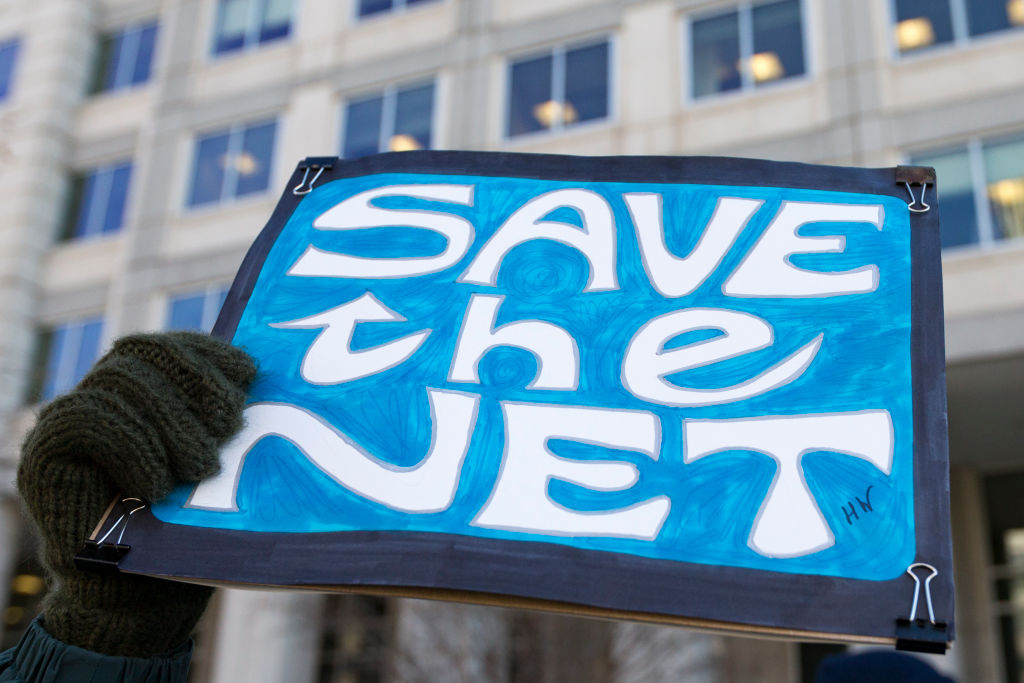The battle to save net neutrality is heating up in court and Congress


A free daily email with the biggest news stories of the day – and the best features from TheWeek.com
You are now subscribed
Your newsletter sign-up was successful
Senate Democrats said Tuesday that they have 50 votes for a measure to restore net neutrality rules overturned by the Republican majority on the Federal Communications Commission (FCC), putting them one vote shy of being able to force the measure. But even if House Speaker Paul Ryan allowed a vote on the measure and it passed, President Trump would likely veto it, despite net neutrality's broad popularity. So Tuesday also saw a handful of federal lawsuits filed to block the FCC's net neutrality repeal.
One suit was filed by the attorneys general of 21 states and Washington, D.C., all of them Democrats, arguing that the FCC's "arbitrary and capricious" decision violated federal law and the FCC's longstanding policy of preventing internet service providers from blocking or throttling websites. "The repeal of net neutrality would turn internet service providers into gatekeepers — allowing them to put profits over consumers while controlling what we see, what we do, and what we say online," said New York Attorney General Eric Schneiderman. The Mozilla Foundation, the Open Technology Institute, and the public interest groups Free Press and Public Knowledge also filed separate lawsuits.
The 2015 rule giving the FCC teeth to enforce net neutrality, like previous net neutrality rules, was challenged in court by telecom firms, and a federal appellate court sided with the FCC in that case. Broadband companies are now siding with the FCC while the Internet Association, a trade group that includes Google and Netflix, is backing the net neutrality side. The FCC said its December rule stipulated that its net neutrality repeal couldn't be challenged until it was logged in the Federal Registry, so Tuesday's lawsuits were preliminary moves to determine which court will hear this round of legal challenges.
The Week
Escape your echo chamber. Get the facts behind the news, plus analysis from multiple perspectives.

Sign up for The Week's Free Newsletters
From our morning news briefing to a weekly Good News Newsletter, get the best of The Week delivered directly to your inbox.
From our morning news briefing to a weekly Good News Newsletter, get the best of The Week delivered directly to your inbox.
A free daily email with the biggest news stories of the day – and the best features from TheWeek.com
Peter has worked as a news and culture writer and editor at The Week since the site's launch in 2008. He covers politics, world affairs, religion and cultural currents. His journalism career began as a copy editor at a financial newswire and has included editorial positions at The New York Times Magazine, Facts on File, and Oregon State University.
-
 Why is the Trump administration talking about ‘Western civilization’?
Why is the Trump administration talking about ‘Western civilization’?Talking Points Rubio says Europe, US bonded by religion and ancestry
-
 Quentin Deranque: a student’s death energizes the French far right
Quentin Deranque: a student’s death energizes the French far rightIN THE SPOTLIGHT Reactions to the violent killing of an ultraconservative activist offer a glimpse at the culture wars roiling France ahead of next year’s elections
-
 Secured vs. unsecured loans: how do they differ and which is better?
Secured vs. unsecured loans: how do they differ and which is better?the explainer They are distinguished by the level of risk and the inclusion of collateral
-
 TikTok secures deal to remain in US
TikTok secures deal to remain in USSpeed Read ByteDance will form a US version of the popular video-sharing platform
-
 Unemployment rate ticks up amid fall job losses
Unemployment rate ticks up amid fall job lossesSpeed Read Data released by the Commerce Department indicates ‘one of the weakest American labor markets in years’
-
 US mints final penny after 232-year run
US mints final penny after 232-year runSpeed Read Production of the one-cent coin has ended
-
 Warner Bros. explores sale amid Paramount bids
Warner Bros. explores sale amid Paramount bidsSpeed Read The media giant, home to HBO and DC Studios, has received interest from multiple buying parties
-
 Gold tops $4K per ounce, signaling financial unease
Gold tops $4K per ounce, signaling financial uneaseSpeed Read Investors are worried about President Donald Trump’s trade war
-
 Electronic Arts to go private in record $55B deal
Electronic Arts to go private in record $55B dealspeed read The video game giant is behind ‘The Sims’ and ‘Madden NFL’
-
 New York court tosses Trump's $500M fraud fine
New York court tosses Trump's $500M fraud fineSpeed Read A divided appeals court threw out a hefty penalty against President Trump for fraudulently inflating his wealth
-
 Trump said to seek government stake in Intel
Trump said to seek government stake in IntelSpeed Read The president and Intel CEO Lip-Bu Tan reportedly discussed the proposal at a recent meeting
